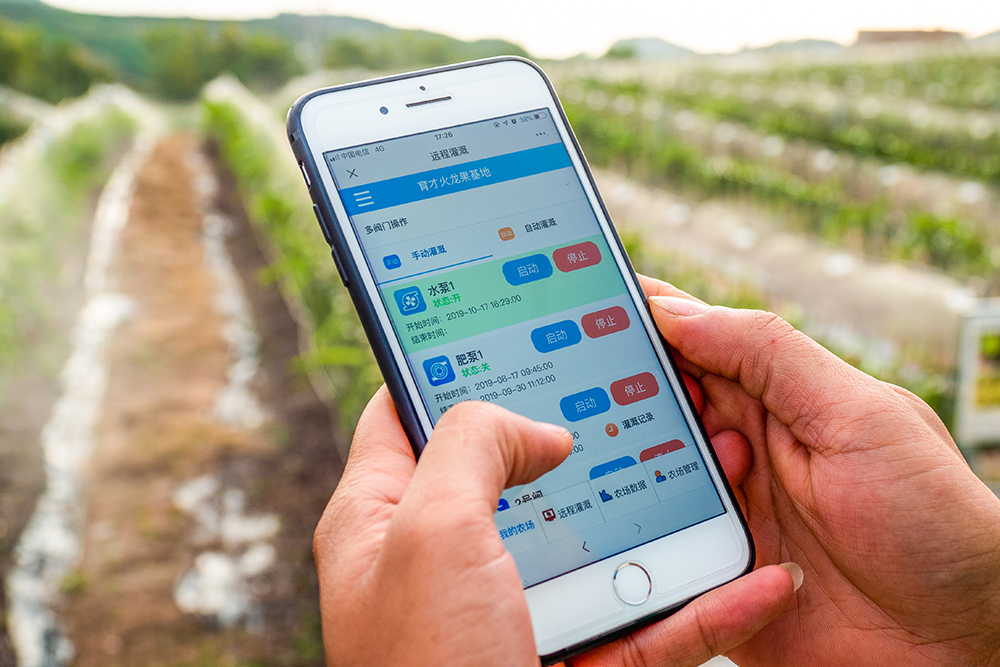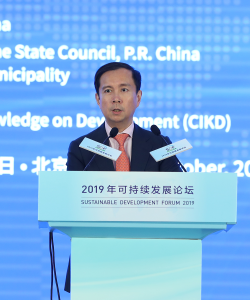
Alibaba Group’s digital businesses and its philanthropy initiatives have made contributions to 16 of the United Nations’ 17 Sustainable Development Goals, according to a new report from the Center for International Knowledge on Development, a think tank affiliated with the State Council of China.
Presented at the State Council’s inaugural China Sustainable Development Forum in Beijing last week, which brought together members of China’s public and private sectors to review the progress that the country has made toward the UN’s 2030 SDG Agenda, the report highlighted Alibaba’s efforts in areas such as eradicating poverty, inclusive economic growth and sustainable consumption. Alibaba has also contributed to more than half of the 169 secondary development targets under these goals, the report said, although it did not offer an exact number.
Alibaba aims “to be a good company that not only does good for ourselves but more importantly for others,” Executive Chairman and CEO Daniel Zhang said during a speech at the forum. Zhang added that the CEO role at any company should include the mindset and responsibilities of a chief sustainability officer, aligning sustainability with business strategies.
The following are examples of how Alibaba has met SDG goals:

Taobao Villages, which are areas in rural China with a large number of merchants selling on the Alibaba e-commerce platform, have helped “end poverty in all its forms everywhere,” the first Sustainable Development Goal. There are over 800 Taobao villages in provincial-level impoverished counties and 63 Taobao villages in national-level impoverished counties in 2019 where merchants sell their agricultural and artisanal products to online shoppers, the report said. The total estimated revenues from e-commerce added to households in those 63 national-level counties alone amounted to RMB 2 billion ($283 million) in 2018, the report estimated.
Alibaba’s digital economy is also a powerhouse for job creation, contributing to the eighth SDG of “promoting inclusive and sustainable economic growth, employment and decent work for all,” according the report. In 2018, Alibaba created more than 40 million jobs within its broader ecosystem, which included industry partners, according to a Remin University study cited by the report. Some of the jobs that Alibaba created are unique to the digital era, such as livestreaming influencers, interior designers for livestreaming studios and digital managers that assist office upgrades using Ding Talk. Alibaba also created inclusive jobs, such as customer-service positions for Taobao for people with disabilities.
Cainiao Network, the logistics affiliate of Alibaba Group, has promoted environmental sustainability through its various green initiatives, such as a package recycling program and the use of biodegradable package materials and digital invoices. These initiatives have helped meet SDG number 12, “ensuring sustainable consumption and production patterns,” According to the report, Cainiao’s digital invoice system saves 20 billion pieces of paper a year in the logistics industry in China. Cainiao’s smart-packaging design, which allows for the more efficient-use of space in shipping boxes, was used to produce 250 million packages last year and reduce the use of packaging materials by 15%, the report said.
Ant Forest, the tree-planting mini-program within the Alipay mobile payments and lifestyle app, is helping to fight deforestation in China. That falls under SDG 15: “Sustainably manage forests, combat desertification, halt and reverse land degradation, halt bio diversity loss.” Ant Forest’s more than 500 million users are rewarded for making small, environmentally friendly decisions in their daily lives through “green energy” points, and those points can be redeemed to plant trees in areas of the country in need of vegetation. So far, 122 million trees have been planted as a result of Ant Forest participation, covering 112,000 hectares’ in China, the reported estimated.
Alibaba is contributing to sustainable development outside of China as well, the report noted. The Electronic World Trade Platform, an Alibaba Group-led initiative that aims to lower barriers to global trade for small and medium-sized enterprises via e-commerce, is promoting transparency and a healthy business environment for participating countries. That “helps developing countries, SMEs and young people to access global markets easily,” said the report. Malaysia and Rwanda were featured as two countries that have benefited by joining the eWTP.




